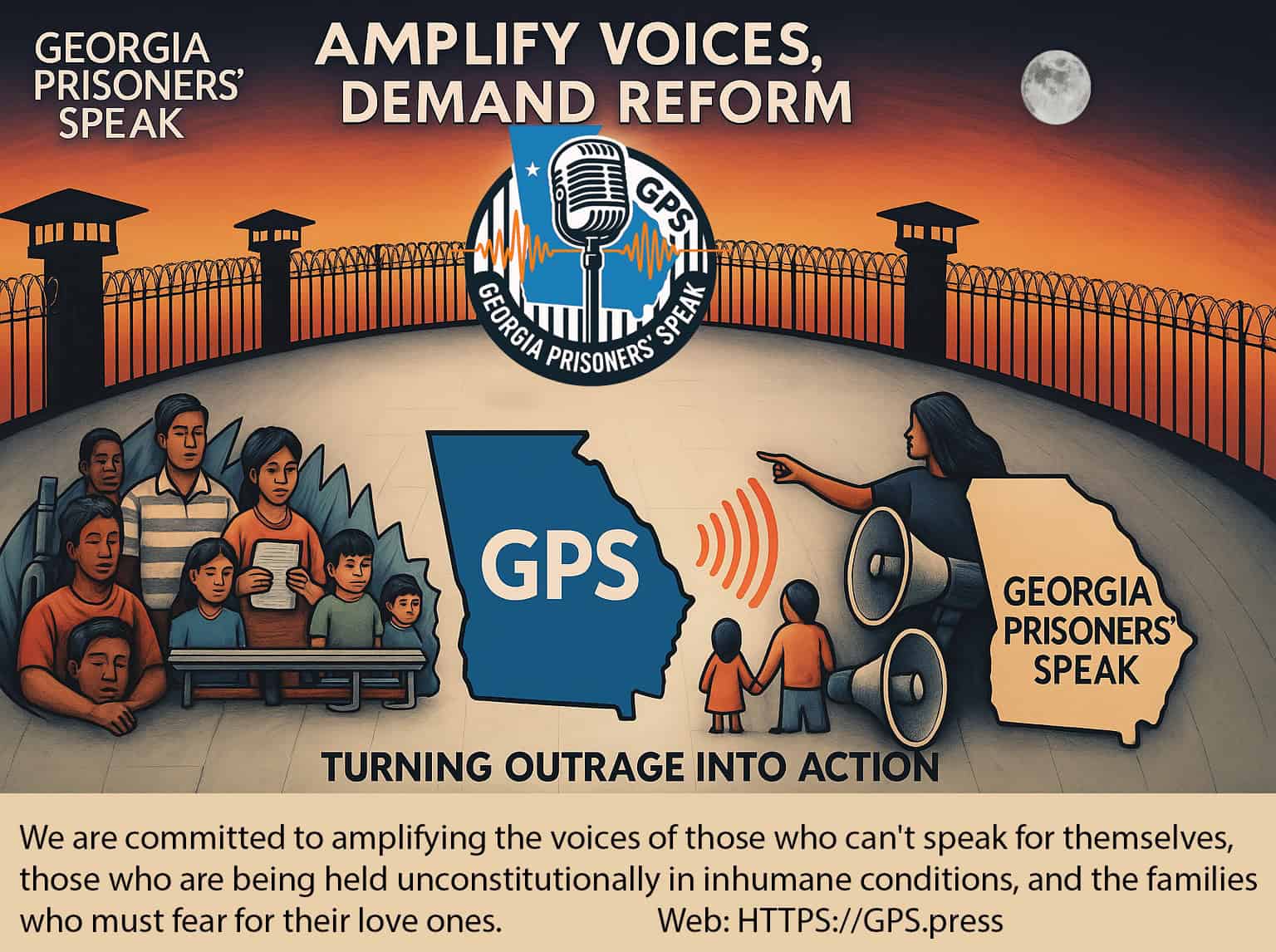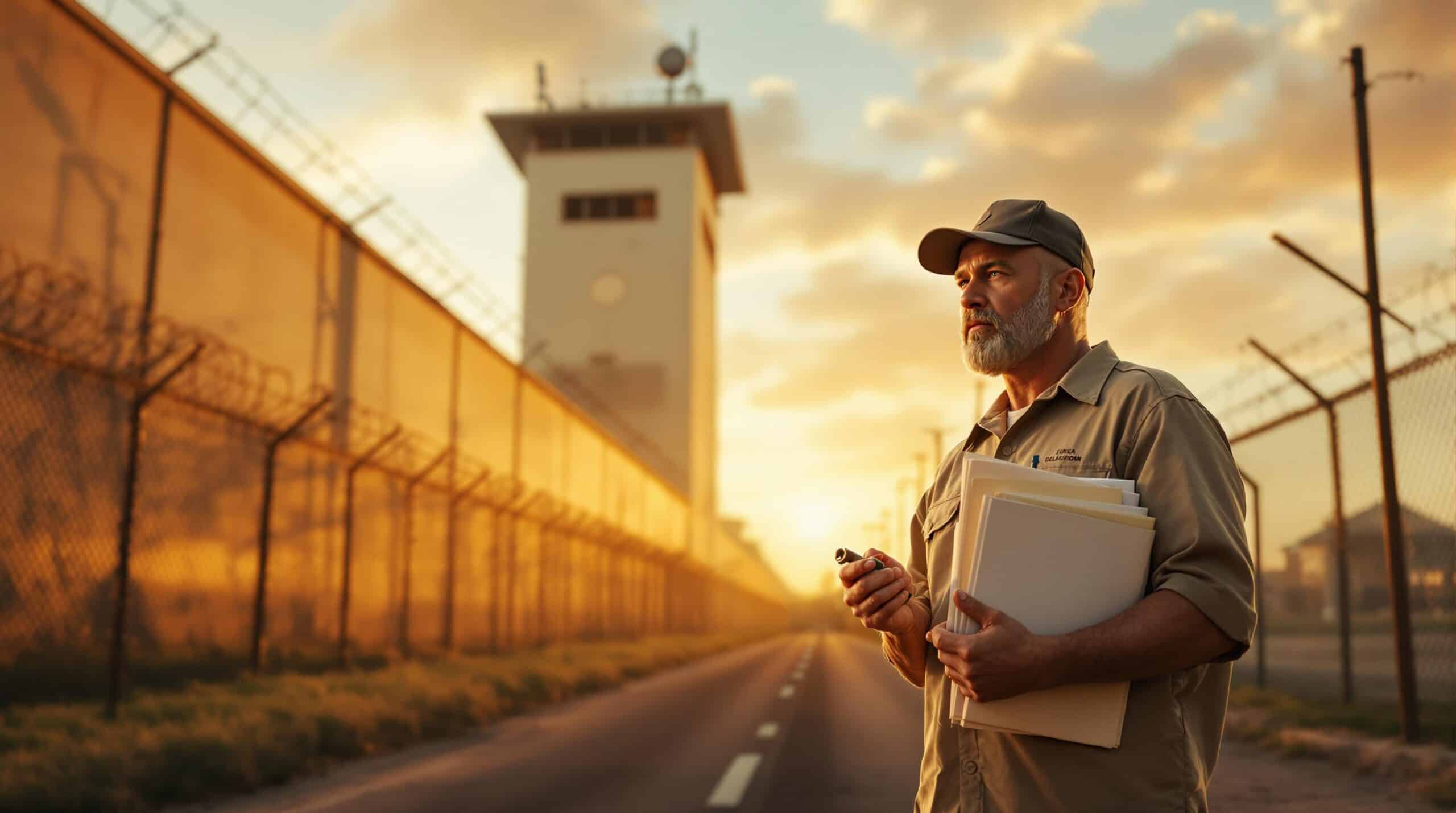Georgia punishes people who expose prison abuse. Staff who report misconduct face retaliation. Prisoners who document conditions face punishment. Families who speak out face threats. This is how Georgia protects its unconstitutional prison system—by silencing everyone who tries to expose it. 1
The Cost of Silence
When whistleblowers face retaliation, abuses continue unchecked. GPS has documented the consequences:
- 1,682 deaths since 2020 — many unreported until families came forward
- 100+ homicides in 2024 — violence the state refused to acknowledge
- Medical neglect that kills — exposed only through confidential reports
- Staff corruption — 45 guards indicted, more operating unchecked
Every death represents a failure someone could have prevented—if reporting weren’t so dangerous. 2
How Retaliation Works
Georgia’s prison system has perfected the art of silencing critics:
For Staff Who Report:
- Unfavorable shift assignments
- Denial of promotions
- Hostile work environments
- Termination on pretextual grounds
- Blacklisting from corrections careers
For Prisoners Who Document:
- Solitary confinement as punishment
- Transfer to more dangerous facilities
- Loss of privileges and good time credits
- Denial of medical care
- Physical retaliation from staff or gangs
For Families Who Advocate:
- Restricted visitation
- Denial of phone calls
- Threats against incarcerated loved ones
- Harassment and intimidation
The Legal Vacuum
Georgia’s whistleblower protections fail those inside the prison system:
- Prisoners excluded — Incarcerated people have minimal legal protection for reporting
- Staff coverage limited — Protections don’t extend to many corrections employees
- Enforcement weak — Retaliation claims are difficult to prove and rarely prosecuted
- GDC investigates itself — No independent oversight of retaliation claims
The Department of Justice investigation documented systemic problems. But federal findings don’t automatically translate to state-level protections for those who provided the evidence.
What Must Change
Effective whistleblower protection requires:
- Anonymous reporting channels — Secure methods for documenting abuse
- Legal immunity — Protection from disciplinary action for good-faith reports
- Independent investigation — External review of retaliation claims
- Evidence preservation — Protected documentation of abuse
- Criminal penalties — For officials who retaliate against reporters
GPS provides some of these protections through confidential reporting channels. The state should provide them for everyone.
How GPS Protects Reporters
Georgia Prisoners’ Speak maintains secure channels for reporting:
- Confidential submission forms — Report conditions safely
- Evidence verification — Professional standards for documentation
- Public accountability — Verified reports become public evidence
- Advocacy support — Connecting reports to legislative action
Your information becomes evidence the state can’t suppress.
Take Action
Use Impact Justice AI to send advocacy emails demanding whistleblower protections in Georgia prisons. The free tool crafts personalized messages to Georgia lawmakers—no experience required.
Demand:
- Whistleblower protections extended to corrections staff and prisoners
- Independent oversight of retaliation claims
- Criminal penalties for officials who retaliate
- Anonymous reporting channels within GDC
Further Reading
- Reporting Prisoner Safety Concerns
- Record Every Call: How to Expose Contempt and Abuse
- GPS Informational Resources
- Pathways to Success
About Georgia Prisoners’ Speak (GPS)
Georgia Prisoners’ Speak (GPS) is a nonprofit investigative newsroom built in partnership with incarcerated reporters, families, advocates, and data analysts. Operating independently from the Georgia Department of Corrections, GPS documents the truth the state refuses to acknowledge: extreme violence, fatal medical neglect, gang-controlled dorms, collapsed staffing, fraudulent reporting practices, and unconstitutional conditions across Georgia’s prisons.
Through confidential reporting channels, secure communication, evidence verification, public-records requests, legislative research, and professional investigative standards, GPS provides the transparency the system lacks. Our mission is to expose abuses, protect incarcerated people, support families, and push Georgia toward meaningful reform based on human rights, evidence, and public accountability.
Every article is part of a larger fight — to end the silence, reveal the truth, and demand justice.

